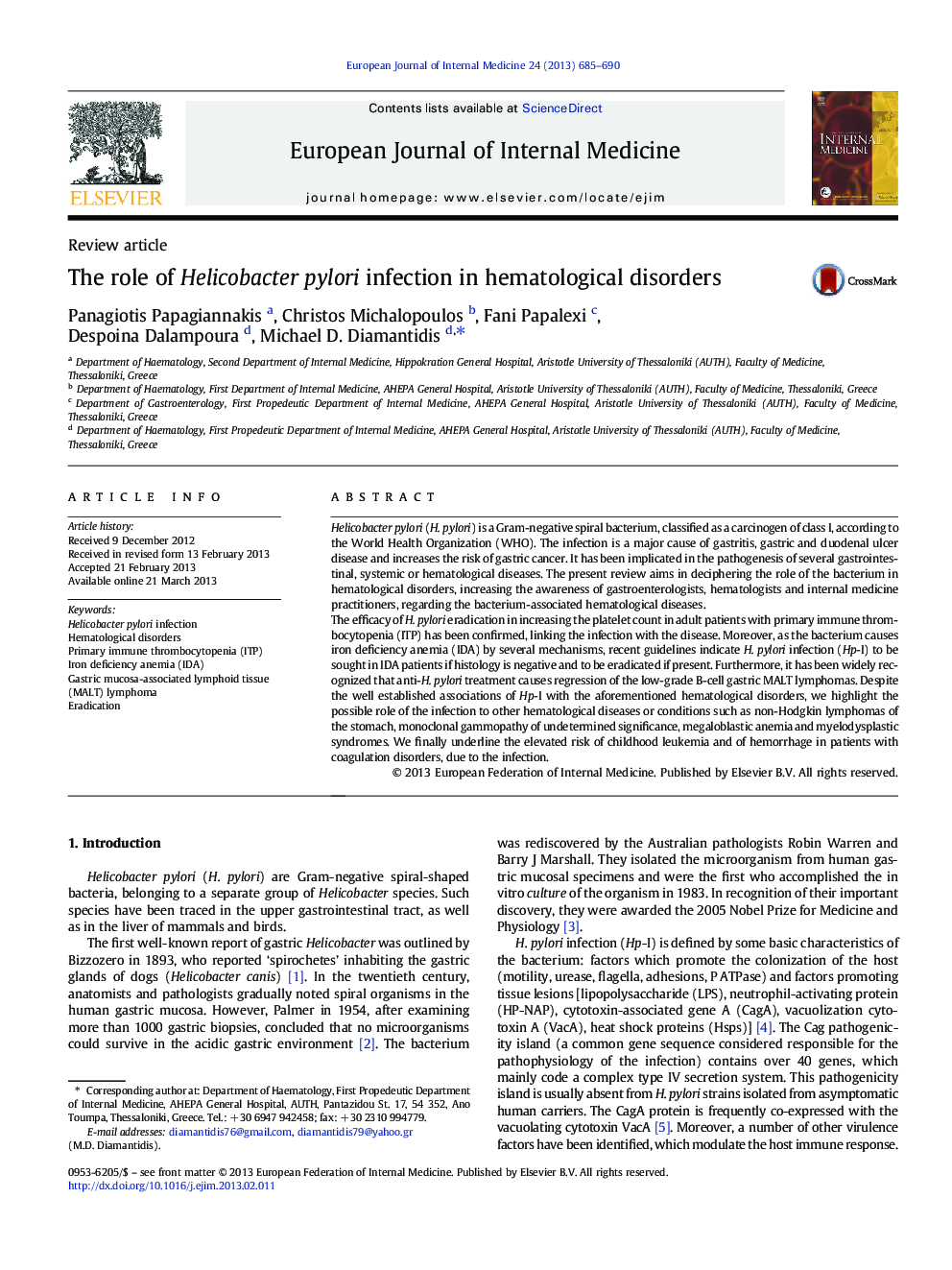| Article ID | Journal | Published Year | Pages | File Type |
|---|---|---|---|---|
| 3466352 | European Journal of Internal Medicine | 2013 | 6 Pages |
Helicobacter pylori (H. pylori) is a Gram-negative spiral bacterium, classified as a carcinogen of class I, according to the World Health Organization (WHO). The infection is a major cause of gastritis, gastric and duodenal ulcer disease and increases the risk of gastric cancer. It has been implicated in the pathogenesis of several gastrointestinal, systemic or hematological diseases. The present review aims in deciphering the role of the bacterium in hematological disorders, increasing the awareness of gastroenterologists, hematologists and internal medicine practitioners, regarding the bacterium-associated hematological diseases.The efficacy of H. pylori eradication in increasing the platelet count in adult patients with primary immune thrombocytopenia (ITP) has been confirmed, linking the infection with the disease. Moreover, as the bacterium causes iron deficiency anemia (IDA) by several mechanisms, recent guidelines indicate H. pylori infection (Hp-I) to be sought in IDA patients if histology is negative and to be eradicated if present. Furthermore, it has been widely recognized that anti-H. pylori treatment causes regression of the low-grade B-cell gastric MALT lymphomas. Despite the well established associations of Hp-I with the aforementioned hematological disorders, we highlight the possible role of the infection to other hematological diseases or conditions such as non-Hodgkin lymphomas of the stomach, monoclonal gammopathy of undetermined significance, megaloblastic anemia and myelodysplastic syndromes. We finally underline the elevated risk of childhood leukemia and of hemorrhage in patients with coagulation disorders, due to the infection.
